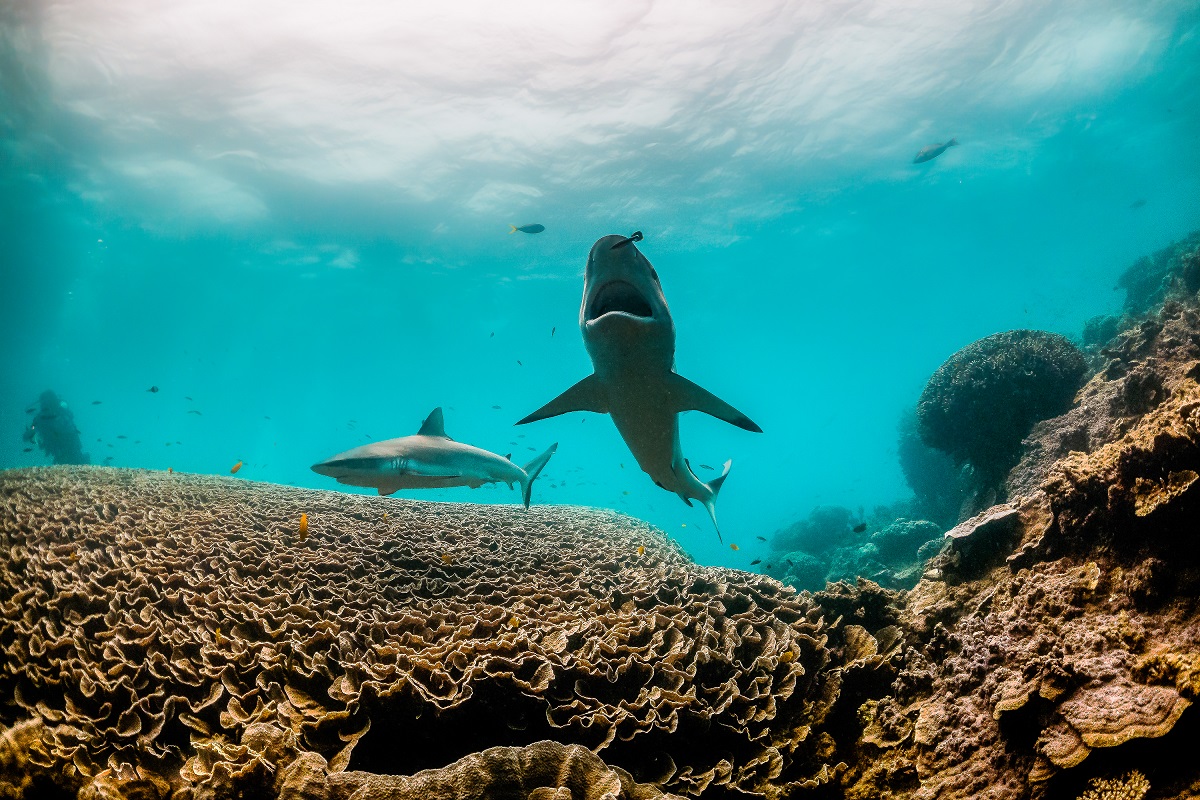
A previously unknown opportunistic relationship of grey reef sharks has been identified, which significantly improves their hunting success by utilising the skills of another species.
The newly understood hunting strategy was identified by an international research team including Flinders University’s Associate Professor Charlie Huveneers and colleagues from the United States and France.
The research team examined night-time predation around the Fakarava Atoll in French Polynesia between 2014 and 2018, which is home to approximately 700 grey reef sharks (Carcharhinus amblyrhynchos), together with several other reef shark species in smaller numbers. The same grey sharks are common on Australia’s tropical reefs, including the Great Barrier Reef.
It was observed that by associating with smaller and more flexible whitetip reef sharks, the grey sharks were able to predate on fish hidden deep in the reef crevices, which would usually be inaccessible to them.
Associate Professor Charlie Huveneers says: “We found that the grey reef shark’s success in hunting hidden prey increased from 41% when alone, to 65% when hunting alongside the whitetip reef sharks. By associating with whitetip reef sharks, grey reef sharks were able to access fish hidden in the crevices of the reef, which they would typically not be able to reach.”
“This opportunistic relationship reveals a new facet of shark hunting strategies and suggests that the grey reef shark hunting success is amplified by exploiting the strengths of another species.”
The international dive team conducted 3,000 hours of underwater observations and watched grey reef sharks hunting at night, mostly between dusk and midnight. Often the whitetipped shark would disturb the prey, or another fish not targeted, which the grey shark would then consume. In some instances the prey would be shared – with the whitetipped shark also benefiting at times by feeding on the prey caught by the grey reef sharks that would otherwise have escaped.
Social foraging allows groups of predators to hunt more efficiently than solitary hunting. However, there are also trade-offs between increased detection by prey and increased competition.
The research was led by the Université de Montpellier in France, in collaboration with Flinders University, Andromède Océanologie and Florida International University. It was published in Ecology journal, Heterospecific foraging associations between reef‐associated sharks: first evidence of kleptoparasitism in sharks: https://esajournals.onlinelibrary.wiley.com/doi/10.1002/ecy.3117

